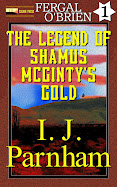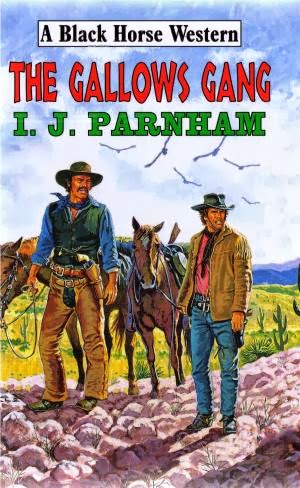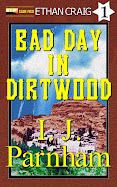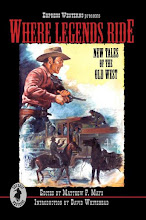
After a couple of poor episodes in mid-season the series has now returned to top form, although I wasn't enthused about the choice of plot this week in which a tense hostage crisis develops at a prison. Every cop series will eventually have a hostage crisis episode and that familiarity with the clichés means they struggle to hold my interest no matter how tense and dramatic things get. As Ashes is at heart a routine cop show, it was no surprise that it delivered all those clichés in the expected manner, but as it's also a show with an original format, I was hoping it would provide something extra. In the main it succeeded.
Having said that the one element that didn’t work for me was its big dramatic twist. The show has a poor record as regards twists and the killing off of a main character (which is also something of a hostage crisis cliché) was a letdown. If Gene or Alex had been shot up, I'd have been thrilled by the makers' bravery. If it had been Chris or Ray, I'd have been suitably saddened. If it had been Keats or Shaz, I'd have been unaffected. But the bloke from Desmond's! Casual viewers probably haven’t even realized he's in the show as he gets less screentime than Luigi. The death of the extra with weird facial hair who never gets a line would have been more traumatic. Frankly as regards memorable moments of tv, the Desmond's episode where the actor's unrequited 'Niles and Daphne style' romance with his secretary finally became requited was far more emotionally packed than the demise of desk sergeant Viv.
Thankfully the rest worked. The episode continued the season's good work with its stylish art direction. I was in two minds earlier in the season about the darker style, but it worked excellently here with several well-framed sequences. The opening was particularly memorable with cops cowering behind riot shields as bricks rain down, Sunday, Bloody Sunday plays, and Gene Hunt strides out at the front in full 'you don’t negotiate with scum' mode. Season 1 of Ashes repeatedly tried to create mythic Hunt moments and it always failed. The series back then thought that all it had to do to work was to have Hunt look mean and moody, but finally it's succeeded in showing he's a man like no other, a man who takes on the bad guys armed only with the power of his stare. The episode also did well to tie the crisis into the arc story, in which the successful ending of the hostage drama was but a means to resolve the growing battle between Keats and Hunt for the hearts, minds and possibly souls of Hunt's team. And in that Keats appeared to be winning as his steady diet of doubt and bile, slightly improbably, started to convince Alex that Hunt was a bad guy.
This ultimately came to a head in another stylish, memorable scene in which Keats repeated the cradling a dying person act. Unlike the previous time he did it, this was effective and creepy as Keats stalked the abandoned, trashed prison whistling Viv's favourite song while watching Viv die with utter indifference. The fact that Hunt also wanted to cradle Viv perhaps makes explicit the idea that these two are battling for the souls of the dying, but it also reminded me oddly of Leone's spaghetti westerns. Leone believed his principle characters were mythic gods from a by-gone age whose personal battles were beyond the understanding of mere mortals. If the makers were going for that, then maybe Hunt is the Good, Keats is the Bad, and Alex is, well, the Ugly... I guess that doesn't work, but it might explain her terrible choice of make-up and hairstyle this season.
Either way, the question of whether Hunt is the Good was the main thrust of the episode as the plot again tried to convince us that Hunt has skeletons locked away in his filing cabinet. This could be leading to several possible conclusions. The first possibility is that it's all a red herring. Twists are inevitable in Ashes and if the show is trying to convince us that Hunt has killed Sam Tyler and possibly the ghost copper, then surely he hasn't. And if this turns out to be the case, I'll be disappointed that so much time has been wasted when Hunt could have just revealed the truth ten minutes into episode one and saved us all a lot of bother. The second alternative is that Hunt really is the Bad. This is possible as the theme for the season is that the good guys are bad, a theme that has been hammered into us so often that now even the characters are saying it several times an episode in case we hadn't realized that that's the theme. I'll applaud the makers if they have the courage to do this, but somehow I can’t see them risking alienating the show's fanbase.
Luckily a more interesting and believable option started to come through again in this episode: that Hunt is the Ugly. When the franchise started and Sam first waltzed into Hunt's kingdom to find he was about to have 'oops and then got a thumping, Hunt wasn't meant to be a hero. He was the antagonist that Sam had to defeat or at best an anti-hero, an overweight, over-the-hill, nicotine-stained, borderline alcoholic homophobe with a superiority complex and an unhealthy obsession with male bonding. Of course back then Hunt was only worried about why Sam thought that was a bad thing, but the viewers took to him as a hero and so a hero he became. But he's not perfect, and that's the point of his character. He does good but in a bad way, he demands fierce loyalty beyond all logical reason, and he's the ultimate personification of the ends justifying the means. Or to put it another way, he voted for Maggie Thatcher but that doesn't make him all bad. So when he discovers that a man on his team was the mastermind behind the prison riot and that he betrayed everything the force stands for, his reaction is to put aside his disgust, declare Viv a hero and cover up his crimes. That to me is the character of Hunt: a corrupt, flawed man or a loyal, moral man, depending on whether you’re in his team or not.
Despite all this the series also inched its way towards revealing the alternate explanation of Hunt's character that addresses the issue of none of these characters necessarily being real people. Whether this reality is Alex's dream world, an alternate reality, or an after-life reality, Hunt's role is clearly key. As is usual all of the elements that are supposed to be explaining this role remained static. Alex's tv is still silent, Molly is still missing presumed forgotten about, Ray and Shaz discussed their visions of stars only briefly, and the ghost copper had his usual blink and you'll miss it spooking. But thankfully Alex did find a picture of the copper in Hunt's drawer and the hint through clever composition grew that the copper may in fact be Hunt. The episode also shockingly revealed that the oft-repeated clue 6-6-20 was the copper's pc number, a revelation that no-doubt failed to excite a single Ashes fan as the Internet community who examine every frame of the show with a scanning electron microscope in search of wild theories had figured that one out within two minutes of the copper first appearing in episode 1.
Better still though was the new elements. We had a bizarre dream sequence that somehow managed to be even weirder than the usual weird dream sequences and we had the welcome return of Sam Tyler. The Sam in question was a con-man prisoner who tries to convince Alex that he's really Sam inhabiting a different body, and pleasingly the episode didn't confirm whether he was just trying to fool her into freeing him or whether he really was Sam. The actor had a John Simm quality to his acting style and facial features which combined to provide just the right amount of ambiguity. And it was fun to have someone ask again whether they'd gone mad, were back in time, or in a coma, especially as Alt-Sam appeared to have gone mad. It also turned out that Alt-Sam was the real Sam's last arrest before he died and so it was possible that Sam had told him the truth that this reality absorbs you and you forget your past life. Then, when you figure out the full truth about this reality, it fragments into nothingness and you move on to something else. Alt-Sam's explanation was compelling because for the first time I started to think that when the show does explain itself, it might do so in a way that doesn’t contradict the ending to Life on Mars, an ending that I like.
Next week is the penultimate episode in which Hunt and Alex go on a date and Alex finally asks Hunt for a straight answer to the straight question of: did you kill Sam Tyler? My money is on his answer being that he'll tell her next week.



















1 comment:
another excellent write up of this superb series.... although i do have to wonder what Keats was doing when holding viv as he died....
Post a Comment